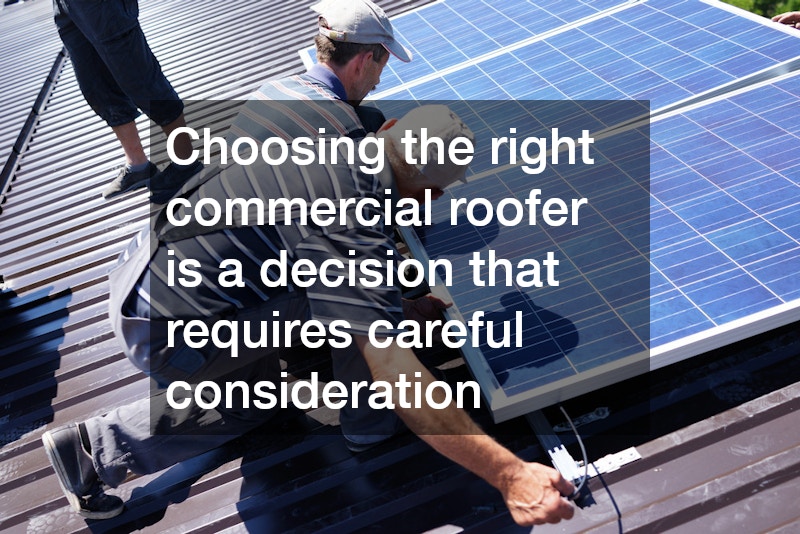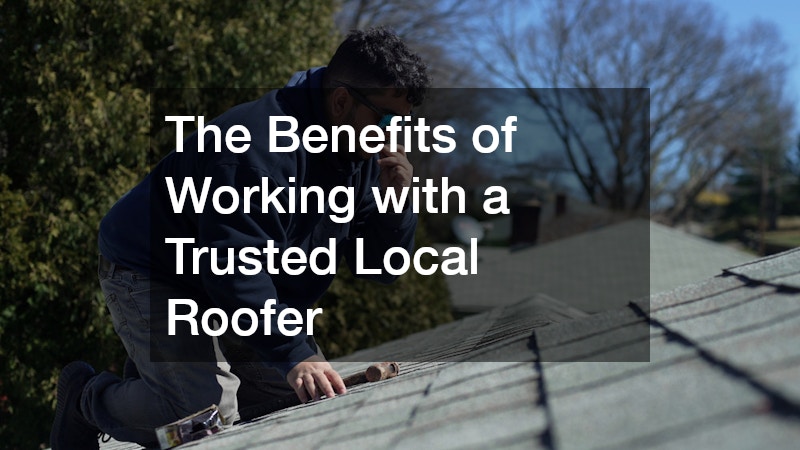Hiring commercial roofers is a significant decision that affects the longevity, efficiency, and safety of a building. A poorly installed or maintained roof can lead to costly repairs, structural damage, and disruptions to daily operations. Given the investment involved, it is essential to choose a contractor who is skilled, reliable, and experienced.
Asking the right questions before hiring a commercial roofer ensures you select a professional capable of delivering quality results. Three of the most important questions to consider focus on the roofer’s experience, the costs and payment terms, and the project timeline.
1. What is the Roofer’s Experience and Expertise?
A commercial roofing project requires specialized knowledge, skills, and materials that differ from residential roofing. It is important to understand the level of experience a roofer has and whether they have worked on projects similar to yours. Established roofers with years of experience are more likely to have encountered and successfully handled a variety of roofing challenges. Additionally, their familiarity with different commercial roofing systems, such as TPO, EPDM, metal, and built-up roofing, ensures they can recommend the best solution for your building.
Certifications and training also play a crucial role in determining the quality of a roofing contractor. Reputable roofers often hold certifications from manufacturers or industry organizations, demonstrating their commitment to high standards and ongoing education. Local building codes and regulations must also be considered, as failing to comply can lead to fines or additional expenses. An experienced roofer will be knowledgeable about these requirements and ensure the project adheres to all necessary regulations. Finally, checking client testimonials and past project case studies offers insight into a roofer’s reliability and quality of work. Speaking with previous clients or reviewing completed projects helps determine whether the contractor has a solid track record.
2. What are the Costs and Payment Terms?
Understanding the financial aspects of a commercial roofing project is essential to avoid unexpected costs and disputes. A professional roofer should provide a detailed cost estimate that outlines all expenses, including labor, materials, permits, and disposal fees. Without an itemized breakdown, businesses may face hidden fees or surprise charges during the project. The payment schedule should also be discussed upfront to ensure transparency. While some contractors require an initial deposit, reputable roofers typically structure payments in stages, with a final payment due upon project completion.
Hidden costs can arise if unexpected structural repairs, insulation upgrades, or weather-related delays occur. A trustworthy contractor should openly discuss potential extra costs and explain how such situations would be handled. Insurance and liability coverage are also crucial factors in the hiring process. A reliable roofer will carry both liability insurance and workers’ compensation to protect against accidents, property damage, or injuries on-site. Requesting proof of insurance before signing a contract safeguards your business from potential legal or financial liabilities. Additionally, comparing multiple quotes helps assess whether the proposed pricing is reasonable. However, the lowest bid is not always the best choice, as significantly cheaper options may compromise on materials or workmanship.
3. What is the Timeline for Project Completion?
A well-defined timeline is essential for minimizing business disruptions and ensuring the project is completed efficiently. Before starting any work, a commercial roofer should conduct a thorough inspection and provide a clear project plan. The timeline should outline each phase, from preparation and material delivery to installation and final cleanup. Having a structured schedule allows business owners to plan accordingly and avoid unnecessary delays.
Unforeseen delays, such as weather conditions, supply chain issues, or unexpected structural problems, can impact the timeline. Asking the roofer about their contingency plan for handling such delays provides insight into their problem-solving approach and ability to stay on track. Effective communication during the project is also crucial. Regular updates from the contractor help prevent misunderstandings and ensure transparency throughout the process. Knowing who to contact for progress reports makes it easier to address any concerns as they arise.
Once the project is nearing completion, a final inspection and walkthrough should be conducted. This step allows both the roofer and the client to review the completed work, address any last-minute concerns, and confirm that the project meets agreed-upon standards. A reputable roofer will take the time to go over the details and ensure the client is satisfied before finalizing the contract.
Choosing the right commercial roofer is a decision that requires careful consideration. Asking about their experience, pricing structure, and project timeline helps identify a contractor who is not only skilled but also reliable and transparent. A high-quality commercial roof is an investment that protects a building and ensures long-term durability. Taking the time to research and ask the right questions can prevent costly mistakes and provide peace of mind. By selecting a knowledgeable and experienced roofer, business owners can feel confident that their roofing project will be completed with professionalism and expertise.
.




